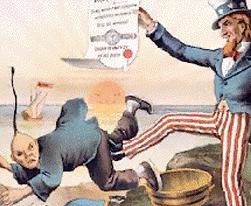Alexander Hamilton as Attorney
The extraordinary success of the Broadway musical “Hamilton” has spiked renewed interest in the accomplishments of the actual Alexander Hamilton (1757-1804). And indeed, Hamilton was a genuine military hero in the Revolutionary War, George Washington’s un official chief of staff, author of two-thirds of the “Federalist Papers,” the nation’s first Secretary of the Treasury, and the leading architect of the Early Republic’s market economy. His accomplishments as an attorney have attracted less attention, but legalists in particular might remember that in his era, he was New York City’s pre-eminent attorney.
official chief of staff, author of two-thirds of the “Federalist Papers,” the nation’s first Secretary of the Treasury, and the leading architect of the Early Republic’s market economy. His accomplishments as an attorney have attracted less attention, but legalists in particular might remember that in his era, he was New York City’s pre-eminent attorney.
When Hamilton returned to New York City after the defeat of the British in 1781, he qualified for a veteran’s exemption from the requirement that aspiring attorneys complete an apprenticeship. He studied law on his own for only six months, concentrating his studies on Lord William Blackstone’s “Commentaries on the English Common Law.” He then passed an oral bar examination and was admitted to practice in 1782.

